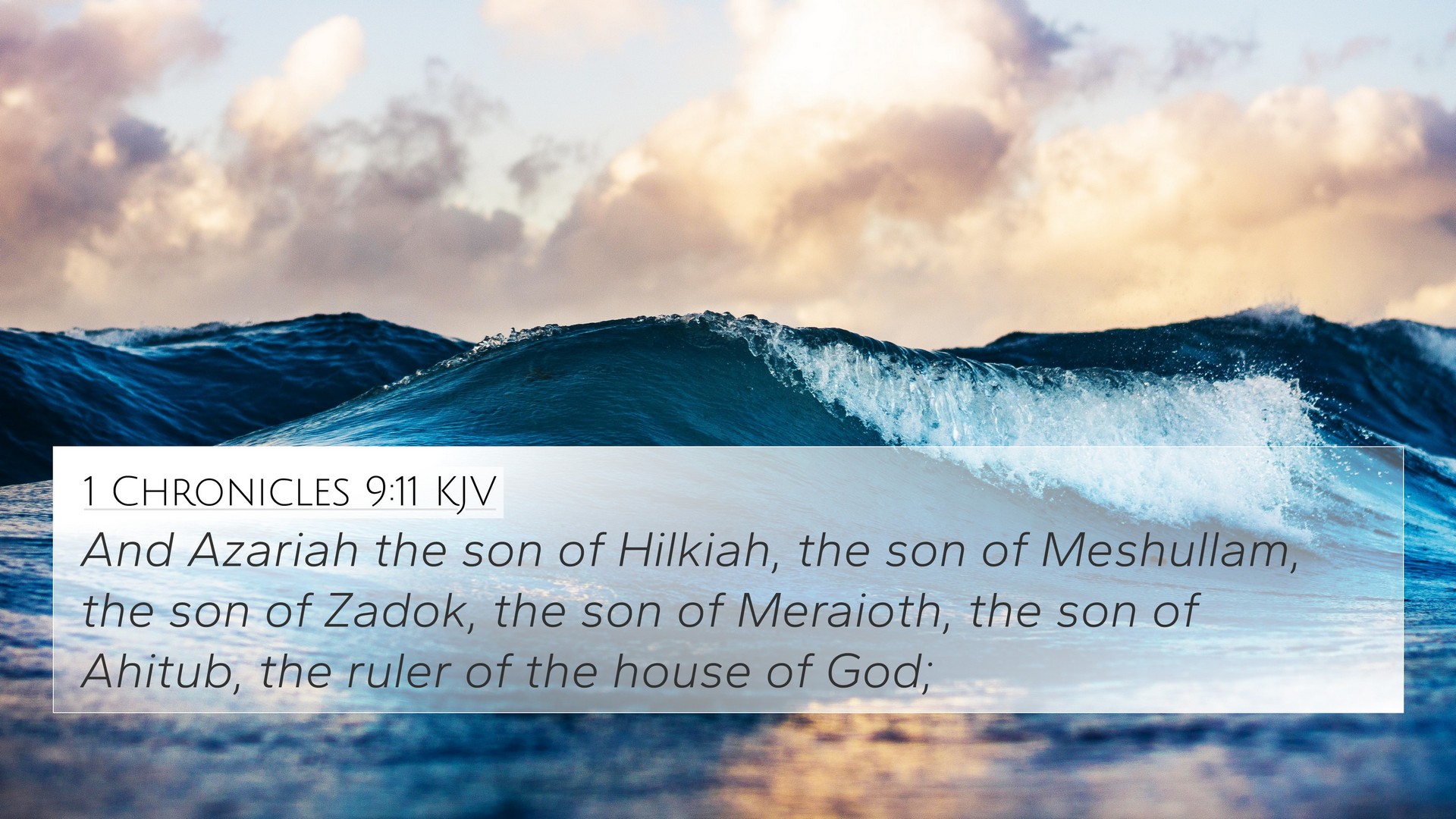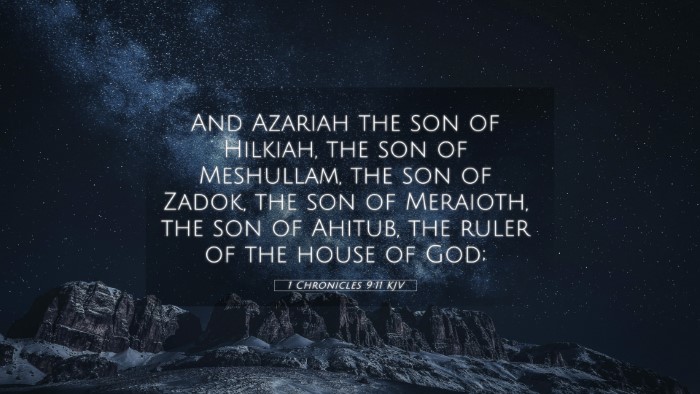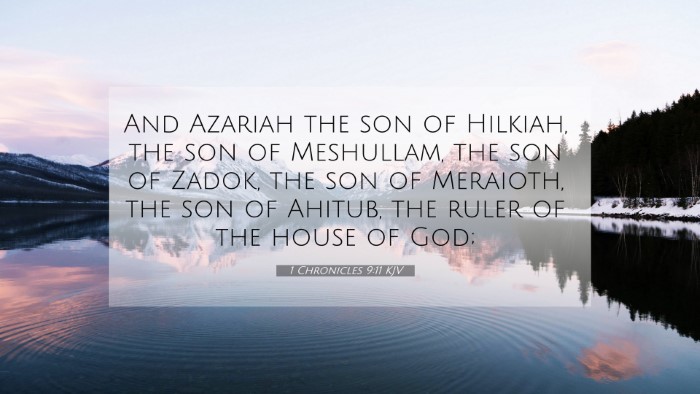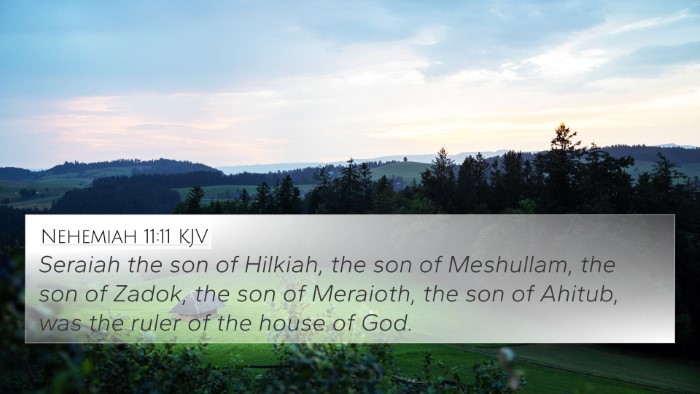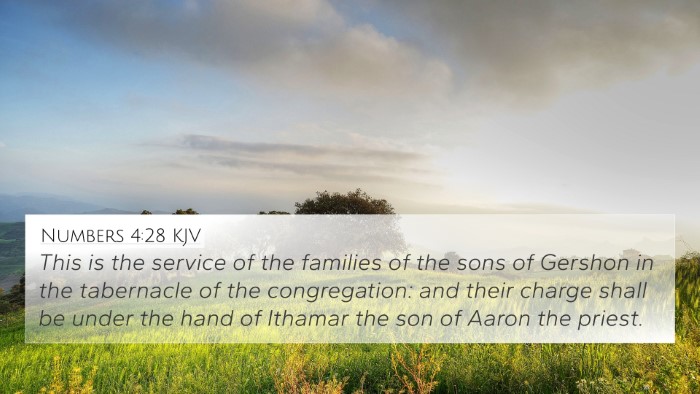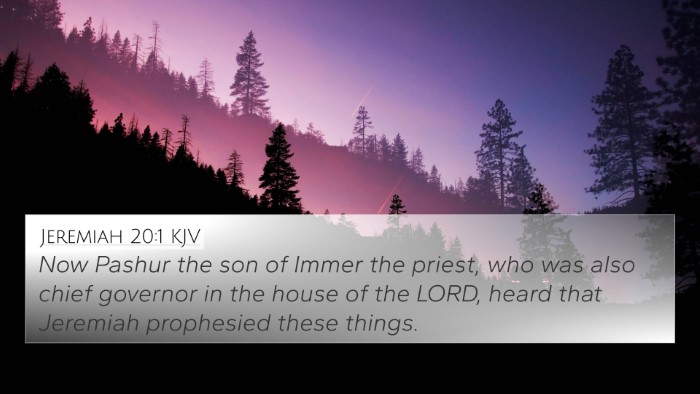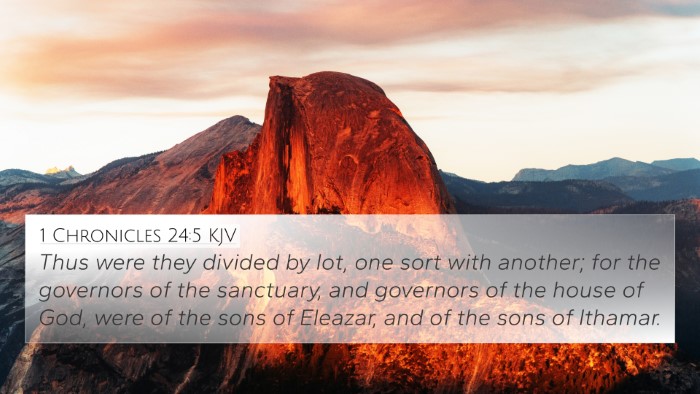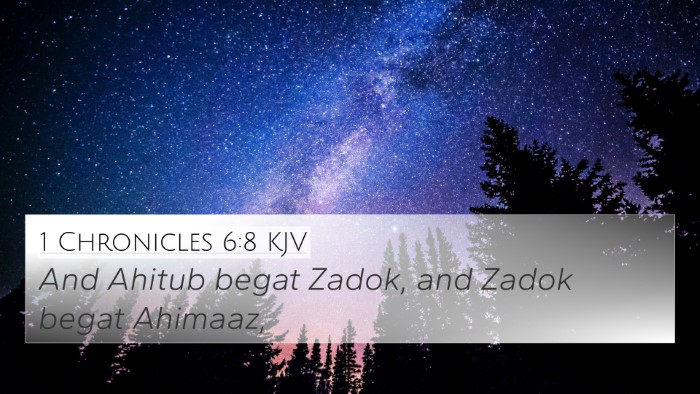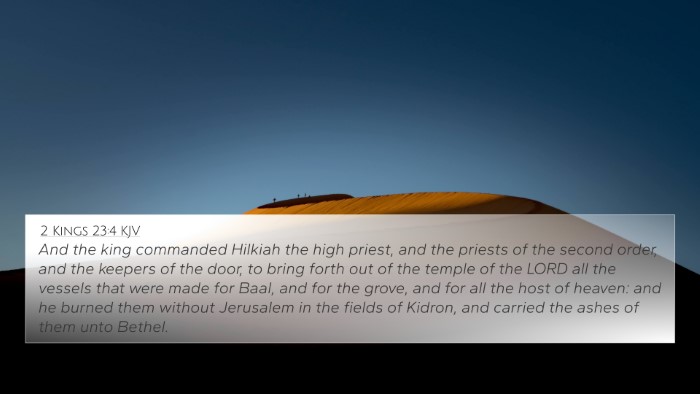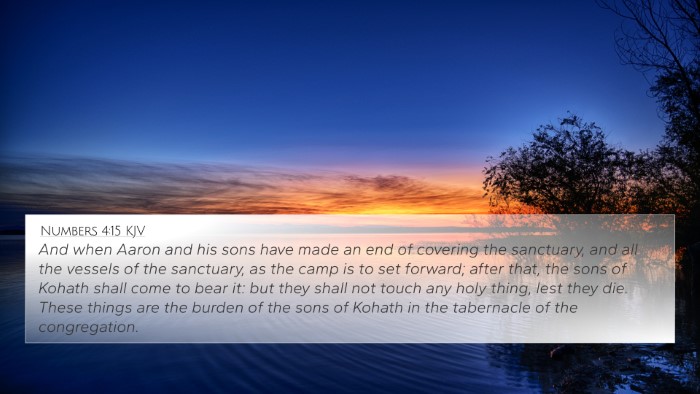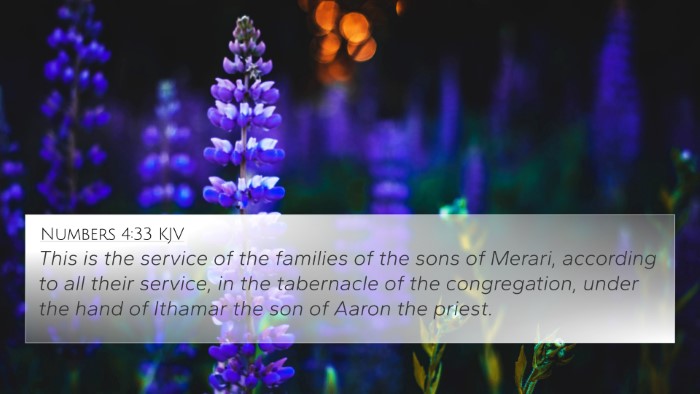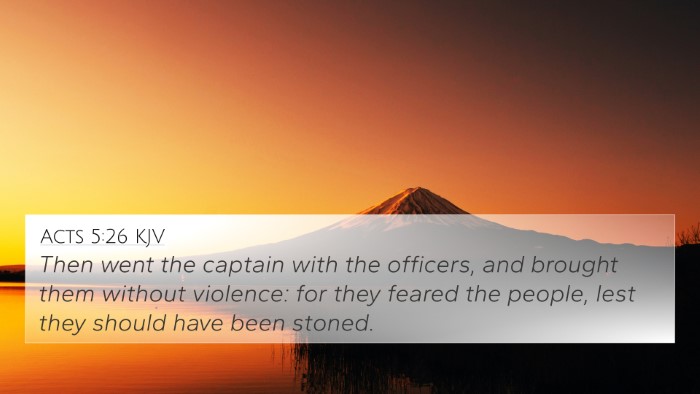Understanding 1 Chronicles 9:11
The verse 1 Chronicles 9:11 states: "And Azariah the son of Hilkiah, the son of Meshullam, the son of Zadok, the son of Ahitub, was the chief of the priests over the house of God." This passage serves as a genealogical record vital to understanding the priestly lineage and temple service in ancient Israel, particularly in relation to the duties assigned within the house of God.
Genealogy and Its Importance
Genealogies in the Bible serve multiple purposes, primary among them being the establishment of legitimacy and authority within religious duties. This passage highlights the lineage of Azariah, showing his direct descent from notable priests, ensuring his established role in the temple service.
-
Matthew Henry's Commentary: Henry emphasizes the importance of this genealogy, noting that it underscores the priest's rightful and divinely sanctioned position in performing sacred duties. The reference to Azariah's lineage is significant, illustrating God’s ongoing covenant with the Levitical priesthood.
-
Albert Barnes' Notes: Barnes points out that genealogies not only inform us about the physical descent of individuals but also serve to remind the readers of God's faithfulness to His promises. Azariah’s connection to esteemed priests signifies a re-establishment of worship practices after exile.
-
Adam Clarke's Commentary: Clarke notes that the specific naming of Azariah within this context highlights the priest's responsibilities and his role in the temple, aligning with the broader narrative of restoration of Israel’s spiritual leadership.
Cross-References for Enhanced Understanding
This verse connects to various other scripture passages, enhancing its meaning through inter-Biblical dialogue. Here are several relevant cross-references:
- Exodus 28:1: Details the setting apart of Aaron and his sons to minister as priests, providing historical context to the priestly line.
- 1 Peter 2:9: Highlights the concept of a royal priesthood, linking the Old Testament priestly roles to the New Testament believers.
- Hebrews 7:14: Refers to Christ's lineage as originating from Judah, showcasing thematic connections between different priestly lines.
- Nehemiah 12:10: Provides further genealogical context, reinforcing the importance of lineage in priestly service.
- Luke 1:5-9: Describes the priestly order of Zechariah, paralleling the responsibilities of the priests in the New Testament era.
- Malachi 2:4-5: Discusses the covenant of Levi, establishing a divine promise to the priestly line.
- 1 Chronicles 6:4-15: Offers a broader genealogical record of the Levites, providing background to Azariah's ancestry.
Thematic Connections
The theology underlying 1 Chronicles 9:11 pertains to the continuous thread of God's faithfulness and the idea of divine authority transmitted through generations. By analyzing these themes:
- Authority of the Priesthood: Each name signifies a legacy, reinforcing the idea that certain families wielded divine authority to act on behalf of the people.
- Restoration of Worship: This genealogy comes during a period of restoration, symbolizing a renewal of covenant relationship between God and His people.
Tools for Further Study
Scholars and believers can enhance their study of this verse through various tools:
- Bible Concordance: Refers to tools that help locate relevant verses and key themes within the scriptures.
- Bible Cross-Reference Guide: A resource that aids in drawing connections between similar biblical texts.
- Cross-reference Bible Study: A method for deepening one’s understanding by noting parallels and contrasts between scriptures.
Final Thoughts
In studying 1 Chronicles 9:11, it’s critical to view the verse not only within its chapter but also within the larger biblical narrative. Cross-referencing with passages from both the Old and New Testaments opens up profound insights into the nature of God’s covenant, priestly authority, and the continuity of worship practices through generations. With a keen eye for connections between Bible verses, individuals can deepen their understanding and appreciation for the richness of scripture.
